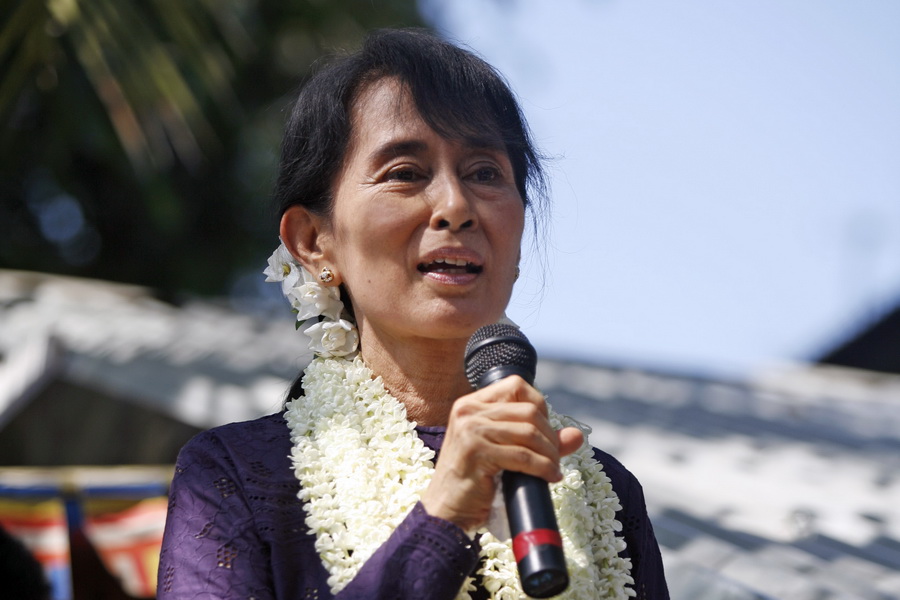The opposition party is pushing for constitutional reforms that would allow its leader to run for president. If it fails, the party lacks new talent.

Yangon, Myanmar — Myanmar’s democracy icon Aung San Suu Kyi faces an uphill battle if she is to become her country’s next president, posing new challenges for the party she led through years of military dictatorship.
A military-drafted constitution bans her from the presidency because her late husband and child are foreigners. Her opposition party is trying to change that rule before next year’s election, which is shaping up as a critical test for an unconsolidated democracy.
Should it fail, the National League for Democracy (NLD) – which is hugely popular – will struggle to find a replacement candidate. The battle over the constitution also exposes the limits of democracy under what remains a military-dominated system in Myanmar (also known as Burma).
In May, the NLD launched a two-month campaign calling for amendments to the constitution. This week it said it had collected 5 million signatures in support of its campaign.
“I dare say that there has never been a case such as this, where 5 million people supported a movement out of their own free will. This is [the] first time in our country’s history,” Ms. Suu Kyi told reporters Wednesday in the capital Naypyidaw.
US Secretary of State John Kerry arrived here Friday on a three-day visit amid criticism from the US Congress over the pace of political reforms under President Thein Sein, a retired general who is the country’s first civilian leader in five decades.
Last month Sen. Mitch McConnell (R) of Kentucky warned that the remaining US sanctions against Myanmar would be kept in place unless Suu Kyi was allowed to stand for president. As it stands, he said, the provision barring her from running would “cast a pall over the legitimacy of the election.”
But despite local support and pressure from abroad, most observers say there is little chance of constitutional change before next year’s poll.
In June, a parliamentary review committee dominated by the military-backed ruling party rejected making changes to provisions dealing with the presidency. “At the moment you’d have to say the likelihood of [changes] is very small,” says David Mathieson, a Myanmar researcher at Human Rights Watch. A change to the constitution requires 75 percent parliamentary approval, a nearly impossible task with the military controlling 25 percent of the seats.
‘Who will be successor to Aung San Suu Kyi?’
This decision poses a dilemma for the NLD, which was founded in 1988 amid nationwide protests and relies heavily on the exalted status of Suu Kyi, the daughter of the country’s most famous nationalist leader.
“Who will be successor to Aung San Suu Kyi? We have never thought about it,” says Win Htein who sits on the NLD’s executive committee. “She’s the exception. There’s nobody who can match her charisma and who can match her leadership.”
Kyaw Min Swe, chief editor of Yangon-based The Voice, says years of idolizing Suu Kyi had left the party without a Plan B because it lacked a second tier of leaders. “Everybody puts everything on her head. They raise her up a lot, like a queen or a god. Some party members worship her,” he says.
Suu Kyi will be 70 by the time of the election, and the youngest member on the NLD’s executive committee is 62 years old. Mr. Win Htein, who is 72, admitted that recent attempts to bring in young blood hadn’t yielded anyone ready to assume leadership roles during the election.
Myat Thu, the founder of the Yangon School of Political Science, said the party had benefited for years from Suu Kyi’s iconic status, but that it needed to lay the groundwork for life after “The Lady.” “They must prepare for that,” he says, “because she is mortal.”
Published by the Christian Science Monitor, August 9, 2014



